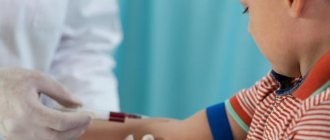Low blood sugar, otherwise hypoglycemia, is an abnormal state of the body, often dangerous to health. Glucose deficiency indicates a chronic or one-time disturbance of metabolic processes, in particular, the processing and absorption of carbohydrates.
Glucose is the main source of nutrition for the brain and energy support for life. The food entering the intestines is broken down during fermentation, forming saccharides from carbohydrate products and amino acids from protein. These two components serve as a source for the formation of glucose molecules, part of which is absorbed into the systemic circulation and, with the help of the hormone insulin, is transported to all tissues and cells of the body.
The liver processes the remaining sugar into glycogen, which is a carbohydrate reserve. In a healthy body, a stable concentration of glucose is maintained relative to the constancy of the internal environment (homeostasis). Low blood sugar means that organs and systems are starved of energy and are unable to function fully.
How does low blood sugar affect the body?
Normal blood sugar levels may fluctuate throughout the day, but not significantly.
But blood sugar levels that are too high or too low can cause health problems. Low blood sugar, or hypoglycemia, occurs when blood sugar levels become too low. And a recent article notes that hypoglycemia most often occurs due to certain medications, especially for diabetes. However, there are other possible reasons.
In this article, we'll learn what low blood sugar is, how it affects the body, and when to see a doctor.
Prices and Quotes
(* The term “sugar” hereinafter in the article is used to mean “glucose.” – Ed.)
E.P. Antonova, endocrinologist
Low blood sugar, that is, a state of the body in which the level of glucose in it decreases significantly, can be observed in various diseases. On the one hand, thanks to numerous publications in the press, online publications, as well as television programs devoted to medical issues, most people have learned well that “high blood sugar is bad.” On the other hand, a persistent decrease in glucose concentration in blood plasma and tissues (hypoglycemia) can also pose a serious threat to health and even life.
Lower blood sugar levels
When it comes to blood sugar levels, it should be understood that in this case we do not mean sucrose (which is usually called sugar in everyday life), but one of the products of its breakdown in the digestive organs - glucose. (In addition to glucose, as a result of the rapid conversion of sucrose in the gastrointestinal tract, fructose is also formed, which, like glucose, is a simple saccharide). Glucose (C6H12O6) plays an extremely important role in the metabolism of the human body, including brain cells - therefore, any deviation in its level towards an increase or decrease can have serious negative consequences. In some cases, serious health consequences can occur even with short-term hypoglycemia, especially if the decrease in blood sugar occurs very quickly.
Low blood sugar: causes
A decrease in blood sugar can be either a physiological phenomenon (that is, observed in healthy people) or a pathological phenomenon, which is associated with the presence of certain diseases. Among the main reasons for the development of hypoglycemia in healthy people, several main ones can be identified:
- limited caloric intake (or simply malnutrition), including an intentional strict diet - for example, for the purpose of quickly losing weight; - increased consumption of carbohydrates. In this case, excessive consumption of sweets (sweets, confectionery, carbonated drinks with sugar), baked goods. As well as foods with a high glycemic index (for example, alcoholic beverages such as beer, fortified and dessert wines) first leads to a rapid increase in blood sugar, followed by a sharp drop in this indicator; — intervals between meals of more than 8 hours; - heavy physical activity - for example, among professional athletes. In this case, an energy deficit occurs, which is eliminated by the body through internal “reserves” - the conversion of liver and skeletal muscle glycogen into glucose as a result of complex chemical reactions.
Low blood sugar can also be caused by various diseases and pathological conditions: - hypoglycemia is often observed in people suffering from both type 1 and type 2 diabetes due to an overdose of insulin or medications to lower blood sugar; - low blood sugar can be caused by diseases of the liver, kidneys and adrenal glands; - in some cases (fortunately rare), hypoglycemia can be a symptom of insulinoma, a special type of tumor whose cells are capable of producing insulin.
Low blood sugar: symptoms in an adult
Most often, low blood sugar is accompanied by the following symptoms: - a feeling of weakness throughout the body, severe fatigue; - tremor (shivering) in the limbs, their numbness; - cardiopalmus; - increased irritability, nervousness; - dizziness; - increased sweating; - darkening of the eyes; - impaired coordination of movements; - feeling of extreme hunger.
All these symptoms of low blood sugar can occur even in a person sitting still or sleeping - they are due to the fact that the brain, which needs glucose no less than the muscles, begins to suffer from its deficiency. If at this stage of the development of hypoglycemia the patient does not introduce glucose into the body (preferably in a quickly digestible form: sugar, honey, sweets, cakes, etc.), his condition may worsen. A further decrease in blood sugar levels can lead to severe symptoms such as: - confusion; - incoherent speech; - convulsive attacks.
Low blood sugar can cause stroke and/or coma, which often leads to death.
Blood sugar has dropped: symptoms
The threshold for a decrease in blood sugar levels at which symptoms of hypoglycemia develop is individual - some people feel normal well-being even when the level of glucose in the blood plasma is below 2.2 mmol/l, while for others a figure of 3.0 mmol/l may become critical. in which they are capable of losing consciousness and falling into a coma. People with type 1 diabetes measure their blood sugar levels several times a day using a portable glucose meter. For those who do not use such a device and often do not even suspect they have diabetes (as a rule, these are adults who developed type 2 diabetes in adulthood), the appearance of symptoms should be a reason for caution and a visit to an endocrinologist. , which they had not previously observed: - unexpected increase in heart rate even at rest; - attacks of dizziness; - severe sweating, which occurs in the absence of physical activity; - attacks of weakness; - feeling of heaviness and fatigue in the legs; - trembling in hands; - attacks of inexplicable fear; - visual impairment; - inability to concentrate.
A sharp decrease in blood sugar: symptoms
A sharp decrease in blood sugar is usually characteristic of patients suffering from type 1 diabetes, who are forced to administer insulin daily using subcutaneous injections. In some cases, this occurs due to an overdose of insulin. However, a sharp decrease in blood sugar can also occur in patients suffering from type 2 diabetes who regularly take special drugs that stimulate the production of insulin by the pancreas (primarily drugs of the meglitinide group and sulfonylurea derivatives).
The following symptoms may indicate a sharp decrease in blood sugar:
- paleness of the skin; - trembling of limbs; - tachycardia (rapid heartbeat); - restless behavior or vice versa - a slow reaction to events happening around; — aggressiveness; - loss of ability to navigate in space.
The appearance of convulsions, confusion, hallucinations and delirium in the patient are symptoms of an approaching hypoglycemic coma, which can lead to cerebral edema and death.
Low blood sugar
We can talk about low blood sugar when the concentration of glucose in the blood plasma reaches 3.0–2.8 mmol/l. If the sugar level drops even more, a condition called hypoglycemia develops. Sometimes hypoglycemia can also occur in completely healthy people - for example, in those who are accustomed to eating irregularly with long breaks between meals, as well as in athletes who subject themselves to enormous physical exertion. Low blood sugar levels are often observed in those who are trying to lose weight using “extreme” diets, completely eliminating not only sugar, but also carbohydrates from the diet. However, most often, a decrease in the level of sugar in the blood plasma is observed in various diseases - not only with an overdose of insulin in people suffering from type 1 diabetes, but with some diseases of the liver, kidneys, adrenal glands, and with such an oncological disease as insulinoma.
Low blood sugar: symptoms in women
The symptoms of low blood sugar in women are, in principle, no different from the symptoms of this dangerous condition in men. When the level of sugar in the blood plasma of representatives of the fair sex decreases, they may experience: - increased heart rate, accompanied by a strong feeling of anxiety and inexplicable fear; - visual impairment; - dizziness; - weakness and tremor of the limbs; - the appearance of severe hunger; - increased sweating.
Low blood sugar is common in pregnant women, especially in the first trimester. This is due to the fact that expectant mothers experience a significant change in hormonal levels, which leads to an increase in the sensitivity of body cells to insulin. As a result, the “utilization” of glucose by the tissues of the pregnant woman’s body is accelerated. In addition, the fetus also needs glucose. Unlike diabetes in pregnant women, low blood sugar in expectant mothers, as a rule, does not pose a danger, but requires only fractional meals - eat often, but little by little, throughout the day.
Material prepared from the publication: https://www.health-ua.org/faq/endokrinologiya-saharnyjdiabet/406.html
What is low blood sugar?
We all need blood sugar to provide energy to our cells.
Hypoglycemia, also known as low blood sugar, is a condition in which the concentration of sugar in the blood falls below the normal range. This may interfere with the normal functioning of the body.
Doctors usually measure blood sugar levels in milligrams per deciliter (mg/dL). In general, healthy blood sugar levels range from 60 to 140 mg/dL.
The National Institute of Diabetes and Digestive and Kidney Diseases (NIDDK) notes that people with diabetes should aim for blood sugar levels of 80-130 mg/dL before meals. 2 hours after starting a meal, your blood sugar should be below 180 mg/dL.
Symptoms of hypoglycemia
Symptoms of mild to moderate hypoglycemia include:
- confusion
- difficulty concentrating
- anxiety
- headache
- cold sweat
- shiver
- rapid pulse
More severe cases may include seizures, loss of consciousness, or inability to eat or drink.
Some people experience several symptoms when their blood sugar levels drop, while others only experience one or two.
Symptoms of hypoglycemia
People who do not have diabetes begin to feel unwell when the readings drop to 3.3 mmol/L. Experienced diabetics usually have elevated sugar levels. Their body reacts more vividly to a sharp decrease in indicators. Symptoms of hypoglycemia, conditionally, are divided into three groups, depending on the severity of the manifestation.
Mild symptoms:
- cephalgic syndrome (headache), dizziness;
- hyperhidrosis (excessive sweating), sometimes with cold sweat;
- increased psycho-emotional excitability, fussiness, unreasonable anxiety;
- low BP (blood pressure);
- astheno-vegetative syndrome (weakness, decreased ability to work);
- rapid, rhythmic contractions of the muscle fibers of the legs and arms (trembling or tremor);
- polyphagia (increased appetite);
- decreased visual acuity.
Symptoms of moderate hypoglycemia:
- psycho-emotional instability (irritability and aggressiveness are replaced by apathy);
- lack of concentration;
- asthenia (neuropsychological weakness);
- increased heart rate (tachycardia);
- speech dysfunction (slow speech);
- ataxia (impaired coordination);
- decreased sensory sensitivity;
- pale skin;
- dysphagia (impaired swallowing function);
- involuntary muscle contraction (convulsive syndrome).
Symptoms of a serious condition: lack of sensory perception, severe paroxysmal manifestations of convulsions, dilated pupils, stuporous state (decay of brain activity), decreased natural reflexes, dementia syndrome (dementia), short-term loss of consciousness (fainting). In the absence of medical assistance, a coma occurs, which can lead to death.
Additionally
In children, hypoglycemia is accompanied by the smell of ammonia from the mouth, as ketone bodies (acetone) appear in the blood. There is a reflex release of stomach contents through the mouth. A decrease in blood glucose can occur during night sleep. In this case, hypoglycemia can be suspected based on the following manifestations:
- restlessness in sleep, “throwing” around the bed;
- sleepwalking (committing any unconscious and uncontrollable actions in a dream);
- hyperhidrosis;
- screaming and moaning associated with nightmares.
After waking up, a patient who has experienced a hypoglycemic attack complains of headaches, nausea, and weakness. Signs of confusion may occur.
Low Blood Sugar: Causes
The NIDDK notes that on a short-term basis, a sugar crash occurs when the level of physical activity increases beyond normal, skips a meal, drinks alcohol without a snack, or vomits.
Sugar levels can also drop if you don't have enough carbohydrates.
In most cases, blood sugar levels drop too low due to diabetes treatment—for example, if a patient has taken too much insulin. Sometimes the body naturally produces too much insulin, which can also cause a decrease.
Medicines for other illnesses may also lower your sugar levels as a side effect.
In addition, low blood sugar can be caused by liver diseases such as hepatitis or kidney problems.
Reasons for low glucose levels
When figuring out why sugar levels decrease, it is necessary to take into account the presence of chronic diseases, primarily diabetes. The development of hypoglycemia in diabetics is provoked by the following factors:
How to measure blood sugar correctly?
- Incorrect insulin therapy for type 1 diabetes. In most cases, this is an excess of the permissible dosage of short and ultra-short insulins (Actrapid, Novorapid).
- The presence of a hormonally active tumor (insulinoma). The pancreatic tumor is capable of producing insulin on its own. Excessive amounts of the hormone in the body leads to a decrease in sugar.
- Taking inappropriate doses of glucose-lowering tablets for type 2 diabetes. Preparations based on sulfonylurea derivatives tend to accumulate and be slowly excreted from the body (Maninil, Tolbutamide, Glimepiride, Glirid, Diabeton).
- Untimely eating. After an insulin injection, a diabetic patient needs to eat so that the body produces the necessary glucose and the drug delivers it to the tissues and cells.
- Physical activity that exceeds the capabilities of a diabetic. In the insulin-dependent type of the disease, exercise should be accompanied by the consumption of complex carbohydrates. Without carbohydrate support, blood sugar drops rapidly.
- A disproportionate combination of components of complex treatment (medicines, food and traditional medicine that lower glucose). Excessive enthusiasm for alternative therapy together with treatment with glucose-lowering drugs can provoke an overdose.
- Uncontrolled intake of alcoholic beverages. Ethanol inhibits the breakdown of food, so the production and resorption (absorption) of glucose slows down.
Important! Heavy alcohol intoxication in a diabetic patient can cause a hypoglycemic coma, since the person does not feel symptoms of a drop in sugar.
In addition to diabetes mellitus, low glucose levels can be observed in the decompensated stage of chronic liver and kidney diseases, in the postoperative period after surgical intervention in the digestive tract, against the background of acute or chronic heart failure, in hypothalamic-pituitary diseases, in particular, in cases of impaired hormone production (adrenocorticotropin, prolactin, somatotropin, etc.), with insufficient synthesis of corticosteroids (adrenal hormones).
Reasons for low sugar in people who do not suffer from these diseases:
- chronic alcoholism;
- excessive sports activity or physical labor;
- poor nutrition (overeating after long-term abstinence from food);
- fasting (including therapeutic fasting);
- menstrual phase of the cycle in women;
- incorrect ways of dealing with extra pounds (fad for diets that do not correspond to health conditions);
- the body’s reaction to the intake and rapid processing of large amounts of simple carbohydrates (response hypoglycemia).
Unstable glucose levels are often detected in pregnant women. In this case, the main reasons for the decrease in sugar are the hyperactive production of insulin by the pancreas, poor nutrition (lack of vitamins, minerals, carbohydrates), and insufficient glucose production to supply two organisms. In a newborn baby, low blood sugar can be caused by the following reasons:
- hypoxia (oxygen starvation) occurred during childbirth;
- the baby was born prematurely (premature delivery);
- the child has been diagnosed with an intrauterine infection;
- the mother has diabetes or was diagnosed with gestational diabetes during pregnancy.
A decrease in glucose in preschool and school-age children indicates an unbalanced diet against the background of irrational physical activity and neuropsychological instability. McCurry syndrome, otherwise idiopathic familial hypoglycemia. A rare disease diagnosed in a male child under 2 years of age. The cause is a hereditary pathology of the enzyme that breaks down insulin (insulinase).
Consequences of hypoglycemia for the body
If low blood sugar is not addressed and symptoms become more prolonged, the condition can lead to several short- and long-term consequences.
Short term effects
In severe cases, short-term complications may occur which include:
- brain bleeding
- acute cardiovascular disease
- cognitive impairment
Long term effects
Low blood sugar has few direct links to critical long-term consequences, but it can increase a patient's vulnerability to other conditions such as heart disease.
For example, an earlier study found that participants with low blood sugar due to type 2 diabetes had an increased risk of developing heart disease and blood vessel problems.
Hypoglycemia may also increase the risk of other conditions, including:
- eye disease
- kidney disease
- nerve damage
In severe cases, nerve cells may die due to lack of glucose. When the nerves that control internal organs are damaged, the body can develop autonomic neuropathy.
With this disease, the patient loses the ability to detect blood sugar and may not experience any symptoms. He may not know that he has low sugar, which prevents early intervention in the course of the disease. This increases the risk of developing severe hypoglycemia.
Hypoglycemia
Hypoglycemia
– a pathological condition characterized by low blood glucose levels (below 3.3 mmol/l).
How is a certain level of sugar formed in our blood, and why can it drop to a critical level? After we eat food containing carbohydrates, glucose is extracted from them and distributed throughout all the nooks and crannies of the body. This is the fuel we cannot live without. In response to glucose entering the blood, the pancreas synthesizes a special hormone - insulin, which allows the cells of our body to receive energy from glucose.
A sharp drop in blood sugar levels is dangerous because you can lose a person in just 30 minutes. There is a saying among diabetics: “insulin is a medicine for smart people.” Why do they say this? Because the victims of hypoglycemia almost always become inattentive and irresponsible people who ignore the advice of a doctor and inject themselves with incorrect doses of insulin at the first signs of poor health. There is no need to panic. You can always avoid danger if you act correctly and consistently.
| Causes of hypoglycemia |
Hypoglycemia can occur both due to an insufficient amount of sugar consumed in food, and due to the body’s increased production of the hormone insulin, which is responsible for processing glucose.
Diabetes mellitus comes in several types. Let's simplify our story and say that there is an insulin-dependent form of diabetes, and there is a non-insulin-dependent one. So, people with the first type of disease are forced to inject themselves with insulin in such a way that it is enough to process exactly the amount of glucose (in XE - bread units) that is obtained from food. The injections are given at regular intervals, they are correlated with meals, and the dosage is determined by the attending endocrinologist.
If the patient has injected himself with more insulin than is required to break down the glucose that has entered the body, the liver begins to save the situation and throws a strategic supply of starch - glycogen - into the blood. But when the bins are empty, an attack of hypoglycemia cannot be avoided.
That’s the problem, because diabetics have nowhere to get a large or even a standard supply of glycogen. These people consume very few starchy foods; they literally count every carbohydrate (and not a good one).
Let us list in order all the possible causes of hypoglycemia
:
- Incorrect insulin dosage;
- A long period of time without food at all (more than 6 hours);
- Intense physical activity, resulting in complete depletion of the body from glucose (including glycogen reserves in the liver);
- Low blood sugar can also be associated with alcohol consumption.
- Hypoglycemia can occur due to an improper diet or the use of certain medications that do not combine well with antidiabetic drugs (aspirin, warfarin, allopurinol, probenecid, etc.), which enhance the effect of insulin. These can be not only specialized products, such as DiaBeta, Glinase, Prandin, Starlix, Januvia or Diabenez. There are medications that do not belong to the group of glucose-lowering drugs, but still enter into a dangerous interaction with insulin.
A critical drop in blood glucose levels can trigger hypoglycemic syndrome not only in people with diabetes. Here's an example from everyday life: an obese elderly man, under pressure from his wife, decided to lose weight. And I didn’t find anything better than to listen to the well-known advice: eat less, stomp more. For a long time he refused the usual food served on the family table: potatoes, pasta, porridge. He was practically starving and often complained of headaches.
The crisis came when he went fishing with friends for the entire weekend. The men were freezing for two days, hauling gear, rowing boats and eating almost exclusively fish (that is, non-carbohydrate food). And to maintain morale they drank vodka. As a result, our hero lost consciousness and was miraculously taken to the hospital on time, where he finally learned that he had low blood sugar.
If a person does not have diabetes, hypoglycemia may be a symptom of another disease of the endocrine system. To establish an accurate diagnosis, it is necessary to undergo a medical examination and begin treatment of the disease that caused this pathological condition.
| Symptoms of hypoglycemia |
Symptoms of hypoglycemia begin to appear when a person's blood sugar level drops below the normal level of 3 mmol/L.
The disease manifests itself differently in all patients, so you should know what symptoms you need to pay attention to first.
People with hypoglycemic syndrome often experience dizziness, decreased consciousness, nervousness, hunger, headache and chills. The patient's pulse quickens, the skin becomes pale, sweating appears, coordination of movements and concentration are impaired. The person may lose consciousness or even fall into a coma.
It is important to know that hypoglycemia has three degrees of severity: mild, moderate and severe. The lower your blood sugar level drops, the more severe the symptoms.
With mild hypoglycemia, the blood glucose meter reading drops below 3.8 mmol/L. The patient feels inexplicable anxiety, nervousness, nausea, hunger, chills, and numbness in his fingertips or lips; Tachycardia may occur.
Moderate hypoglycemia is manifested by a deterioration in consciousness and mood: the person is anxious, irritable, and has difficulty concentrating or thinking. Vision becomes blurred, dizzy and headaches occur. Due to weakness and lack of coordination of movements, a person has difficulty walking and talking.
If your blood sugar level drops below 2.2 mmol/L, this is a sign of severe hypoglycemia. This condition can lead to epileptic seizures, convulsions, loss of consciousness and coma. Body temperature decreases significantly.
People suffering from severe hypoglycemia for a long time are susceptible to cardiovascular diseases and brain damage.
Do not forget that the symptoms of hypoglycemia may be similar to the symptoms of other diseases, so the patient must consult a doctor.
| Complications and consequences |
We have already discussed the dangers of hypoglycemic syndrome as such. But frequently recurring “collapses” in blood sugar levels are fraught with no less serious problems. Small peripheral vessels are destroyed, and this primarily affects the eyes and legs. Over time, a person may develop angiopathy and blindness.
Low glucose levels are extremely dangerous for the brain. This organ is the most gluttonous in our body, and as soon as it lacks sugar, it begins to desperately signal and demand food. The brain physically cannot do without sugar for a long time, which is why when the blood glucose level is below 2 mmol/l, a person experiences a hypoglycemic coma. If the patient is not resuscitated in time, the brain cells will die, which means death.
Other organs of our body also constantly need glucose and react to its deficiency very painfully. It would take a lot of time to list all the syndromes and diseases that affect a person with low blood sugar. Let's just say that it is better to avoid this condition. How to do it? Read on.
| Treatment of hypoglycemia |
People who are at risk of hypoglycemic syndrome should be sure to carefully monitor their condition and regularly measure their blood sugar: situations that can lead to a decrease in blood sugar should be given close attention.
It is very important to notice the first symptoms of hypoglycemia in time and take measures to eliminate them.
If your sugar level drops below normal, you should drink fruit juice, eat a piece of sugar, candy, or other carbohydrate-rich food.
People close to the patient are also required to know the symptoms of hypoglycemia and be able to provide first aid if their health worsens. It is important to always carry a card or sheet of medical information with you in case an attack of hypoglycemia occurs far from home.
In patients with diabetes, hypoglycemia can occur due to drinking alcohol or skipping meals, so it is necessary to constantly maintain a balanced diet, take antidiabetic medications on time, and avoid heavy physical activity and stressful conditions.
In case of hypoglycemia, it is better for the patient to refrain from eating simple carbohydrates, but eat protein foods or complex carbohydrates. During an attack of hypoglycemia, it is also worth carrying glucose tablets or glucose gel with you.
Here is a list of products that can be taken if the condition worsens
:
- sweet candy;
- fruit juice;
- milk;
- honey;
- sugar;
- corn syrup
A quarter of an hour after taking a sugar-containing product, you need to check your blood sugar level. If it does not rise above 3.8 mmol/l, you should eat some more of the above foods.
If hypoglycemic reactions occur more than a couple of times a week, you should definitely consult your doctor.
People susceptible to hypoglycemia often lose consciousness. The best solution in this case is an injection of glucagon, which increases blood sugar levels. The dosage and specifics of using this drug should be discussed in advance with your doctor.
To avoid symptoms of severe hypoglycemia, the patient should always have sugar, candy and other foods containing carbohydrates (crackers, cheese, fruit juice, etc.) with them.
| Treatment with a balanced diet |
Hypoglycemia may indicate diabetes mellitus or some other diseases, so you should first conduct a medical examination to identify the disease that is causing this condition. This is necessary to prescribe the correct course of treatment and medications. But you can fight hypoglycemia using traditional methods, at home.
First of all, in case of hypoglycemia, a person should pay special attention to his diet. Food should be taken regularly, at the same time, at least five times a day. Every 3 hours you should eat small portions of food rich in complex carbohydrates. Preference should be given to rice, fish, cabbage, fruit juices, crackers with peanut butter, dairy products, honey, nuts, etc. This way your blood sugar level will be maintained at a sufficient level.
You should limit the consumption of foods containing high levels of sugar (sweets, cookies, cakes): although they increase the level of glucose in the blood, they at the same time stimulate the production of insulin, which is responsible for its processing. After some time, your blood sugar level may drop even lower, causing you to feel worse.
| Treatment with herbs and berries |
Medicinal plants can also have a positive effect on the metabolism in the body, improve appetite and the functioning of the digestive system.
St. John's wort, plantain, lingonberry and garlic improve metabolic processes in the body. Lingonberries and garlic are eaten fresh or added to food, and healing infusions can be prepared from St. John's wort and plantain.
Rose hips, black currants and lemon are fortified foods that are useful for hypoglycemia.
Rosehip infusion should be prepared from unpeeled fruits by pouring 1 tablespoon of crushed berries with two glasses of boiling water. Then the infusion is kept in a steam bath for 15 minutes, filtered and drunk half a glass twice a day. For taste, the medicine can be sweetened a little.
Black currant can help with irritability, nervousness, calm headaches and normalize sleep.
Yarrow, sea buckthorn and oregano can inhibit the oxidation of organic substances. Calendula, thyme and chokeberry will improve appetite and digestive system function.
For hypoglycemic syndrome, you should use a prescription medicinal mixture. You need to take 2 grams of St. John's wort, burnet, wheatgrass, plantain, chamomile and marsh grass and a gram of wormwood and licorice. The mixture is poured into two glasses of water and boiled. The decoction is taken three times a day (before meals), 50–75 g. The medication lasts a month.
| Treatment of hypoglycemia with Leuzea and Schisandra |
Leuzea
– a plant that can improve blood composition, normalize the number of red and white blood cells, increase hemoglobin, improve the general condition of the body, give strength and energy. Take Leuzea three times a day in the form of a tincture, dissolving 15–30 drops in a tablespoon of warm boiled water.
Schisandra
It is also a wonderful tonic that can not only strengthen the immune system, but also significantly improve the general condition of hypoglycemia. You can make a healthy salad from its leaves: add finely chopped onion, fresh nettle, dandelion leaves, a tablespoon of vegetable oil and sour cream to the lemongrass. Thanks to this simple recipe, people with hypoglycemia will be able to avoid such symptoms of the disease as general weakness, headache, dizziness, drowsiness, irritability, and low blood pressure.
Zubolenko Valentina Ivanovna, endocrinologist
Impact on different body systems
Hypoglycemia can affect several body systems in different ways.
Digestive system
Extremely high or low blood sugar can cause a condition called gastroparesis. Low sugar affects the transmission of signals in the vagus nerve, which normally stimulates gastric emptying.
Gastroparesis causes problems with the digestive system because it can cause food to sit in the stomach for too long before reaching the small intestine. Short-term symptoms of this condition include abdominal pain, nausea and vomiting.
Endocrine and circulatory systems
Severely low blood sugar can also affect the endocrine and circulatory systems, damaging nerves that transmit important information.
The effects on the endocrine system are largely due to the neuroendocrine network, which controls the body's response to low sugar.
The circulatory system responds to low blood sugar by reducing the amount of circulating insulin.
central nervous system
The central nervous system (CNS) includes the brain and spinal cord. Blood sugar is the primary source of energy, so it needs your blood sugar levels to be above a certain level.
Thanks to this, the central nervous system quickly responds to a sharp drop in blood sugar levels, activating various regulatory measures until glucose levels are restored.
Possible consequences
What is the danger of lowering sugar levels below the critical norm? Firstly, low blood sugar is a lack of nutrition for the brain and nervous system. Stable hypoglycemia can negatively affect the neuropsychological state and brain activity. Secondly, with glucose deficiency, the body tries to obtain the necessary energy through the breakdown of proteins. The results can be severe intoxication with decay products.
When sugar is extremely low, there is a risk of developing hypoglycemic coma. This condition is characterized by dysfunction of the structural parts of the brain and the central nervous system (CNS). The main symptoms are areflexia (lack of reflexes), loss of response to external stimuli, loss of consciousness, respiratory dysfunction, and functional failure of the cardiovascular system. Without emergency hospitalization in the intensive care unit, the patient's cardiac activity and breathing stop, and brain death occurs.
Treatment
If you are experiencing symptoms of low sugar, you can quickly get rid of them by consuming foods or drinks that quickly raise your blood sugar.
Options include a glass of milk or orange juice and carbohydrate-rich foods such as a sandwich.
If 15 minutes have passed and your symptoms have not changed, you should eat or drink some more.
In cases where your blood sugar levels drop very severely, you may become drowsy, confused, and unconscious. If this is a recurring event, hypoglycemia should be treated with glucagon injection.
However, if a glucagon injection is ineffective or unavailable, emergency medical help should be called immediately. Symptoms may become more severe, leading to seizures or coma.
Prospects
If the cause of low blood sugar is temporary—for example, after skipping a meal—getting glucose through food and sugary drinks should begin to improve the condition almost immediately.
However, hypoglycemia cannot always be treated with food and drink. If you experience low blood sugar frequently and severe hypoglycemia develops, your doctor may provide a glucagon emergency kit, which includes an injection if necessary.
In this case, patients should wear a medical alert bracelet so that others know what to do in case of an emergency.
Alcohol Precautions for Diabetics
Uncontrolled alcohol consumption can lower blood sugar levels and affect the effects of diabetes. To protect yourself, take the following precautions:
· Monitor your blood sugar levels carefully before, during and after drinking alcohol.
· Don't forget to check your blood sugar before going to bed.
· Never drink alcohol on an empty stomach.
· Avoid drinking alcohol if you have low blood sugar.
· Avoid drinking large amounts of alcohol.
· Men with diabetes should not drink more than two different alcoholic drinks, while women should not drink more than one.
· Avoid very sweet drinks or sweet wines.
· Drink strong alcohol with water or other sugar-free liquid to dilute it.
· Remember that alcoholic drinks stimulate the appetite. Do not overeat or abuse fatty or sweet foods.
· Be prepared for your blood sugar levels to drop after drinking alcohol.
· Keep in mind that wine, liqueur, liqueur and any other sweet alcoholic drink contain sugar.
· Beware of or avoid combining alcohol and physical activity. This may increase the risk of a spike in your blood sugar.
Conclusion
Low blood sugar, also called hypoglycemia, can be a temporary condition that occurs if you skip meals for a while or exercise more intensely than usual.
Low sugar causes mild to moderate symptoms, including dizziness, hunger and weakness, and can be quickly treated by consuming sugary foods or drinks.
Certain conditions, such as diabetes, can also cause low blood sugar. In such cases, symptoms may be more frequent and intense. Severe hypoglycemia has serious consequences.









